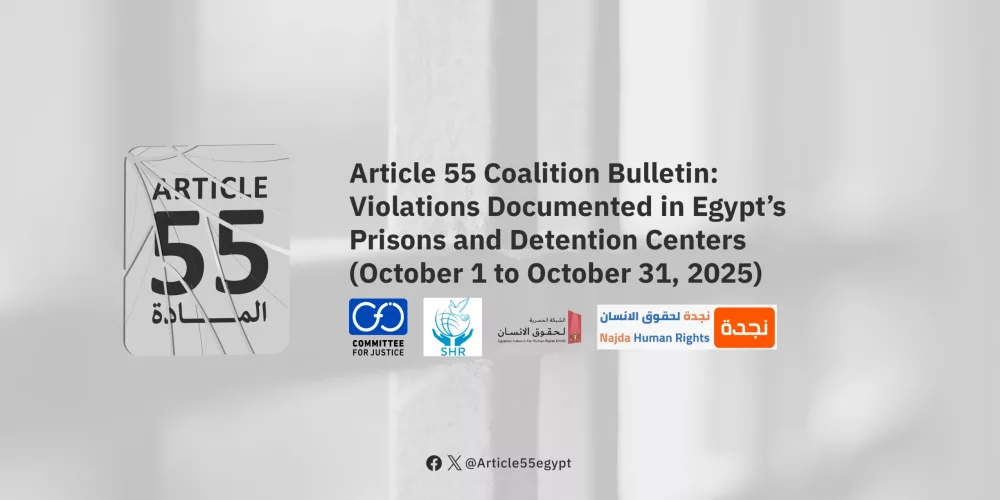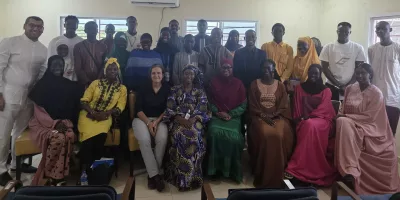Member organizations of the Article 55 Coalition have issued their periodic bulletin on the conditions prevailing in Egyptian prisons and detention centers, documenting violations observed between 1 and 31 October 2025. The bulletin is grounded in Article 55 of the Egyptian Constitution, which mandates the respect of detainees’ dignity and prohibits torture or harm in any form.
This report comes amid a turbulent political, economic, and human rights landscape, marked by continued restrictions on public freedoms and the exclusion of opposition candidates from parliamentary elections. The period also witnessed a surge in labor protests across various public and private institutions, met with security interventions and summonses aimed at intimidating workers demanding their rights. Courts continued to hear cases involving freedom of expression, including the sentencing of economist Abdel Khalek Farouk to five years in prison on charges of spreading false news, and the arrest of journalist Safaa El-Korbeji and researcher Hani Sobhi for expressing their views on social media.
Inside detention facilities, the coalition documented four deaths among detainees during October, attributed to torture, medical neglect, and deteriorating living conditions. Among the deceased were Khalil Mohamed Abu Heba, who reportedly died from brutal torture at the Third El-Mahalla Police Station; Ahmed Hamed Bashendi, who passed away in Abu Zaabal Prison following a severe health crisis; Mostafa Taha, who died in custody at El-Marg Police Station days after his arrest; and Saleh Ayed Rabie, who succumbed to cancer in Minya Prison after being denied adequate medical care.
The coalition also recorded violent incidents at Minya Maximum Security Prison, where security forces attempted to forcibly transfer dozens of political detainees to the New Valley Prison—widely referred to by inmates and families as the “death prison.” Detainees resisted the transfer, threatening mass suicide. Following a violent raid involving batons and reinforcements, twelve detainees attempted suicide by cutting their veins and ingesting medication. They were ultimately transferred by force and immediately declared a hunger strike upon arrival, protesting the breach of promises made by National Security officers at Abu Zaabal Prison.
In Borg El-Arab Prison, under the supervision of officers Hamza El-Masry and Amr Omar, a degrading strip-search operation was carried out in Ward 22. Detainees were forced to stand facing the wall for over ninety minutes, while their personal belongings were scattered and partially destroyed, and access to exercise and outdoor time was completely suspended.
The coalition emphasized that these violations are not isolated incidents but reflect a systematic pattern of prison administration in Egypt—characterized by neglect, abuse, and a persistent lack of accountability. The ongoing policy of impunity, despite repeated documentation by independent organizations, continues to deepen concerns over the fate of detainees and exacerbates the deteriorating conditions within detention facilities.
In conclusion, the Article 55 Coalition called for an urgent and independent investigation into all documented violations, holding those responsible accountable in accordance with Egyptian law and international standards. The coalition stressed the need for full adherence to the United Nations Standard Minimum Rules for the Treatment of Prisoners, and the provision of dignified living conditions that uphold the humanity and fundamental rights of all detainees.
Skip to PDF content





